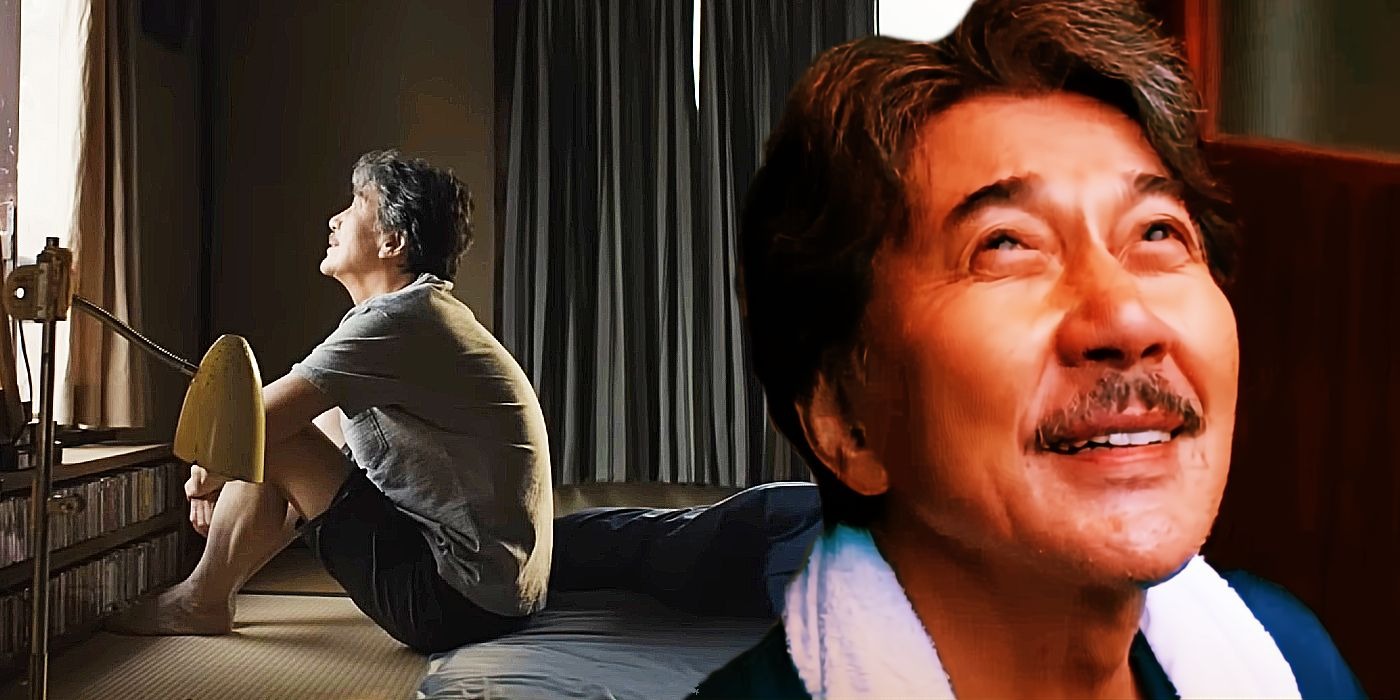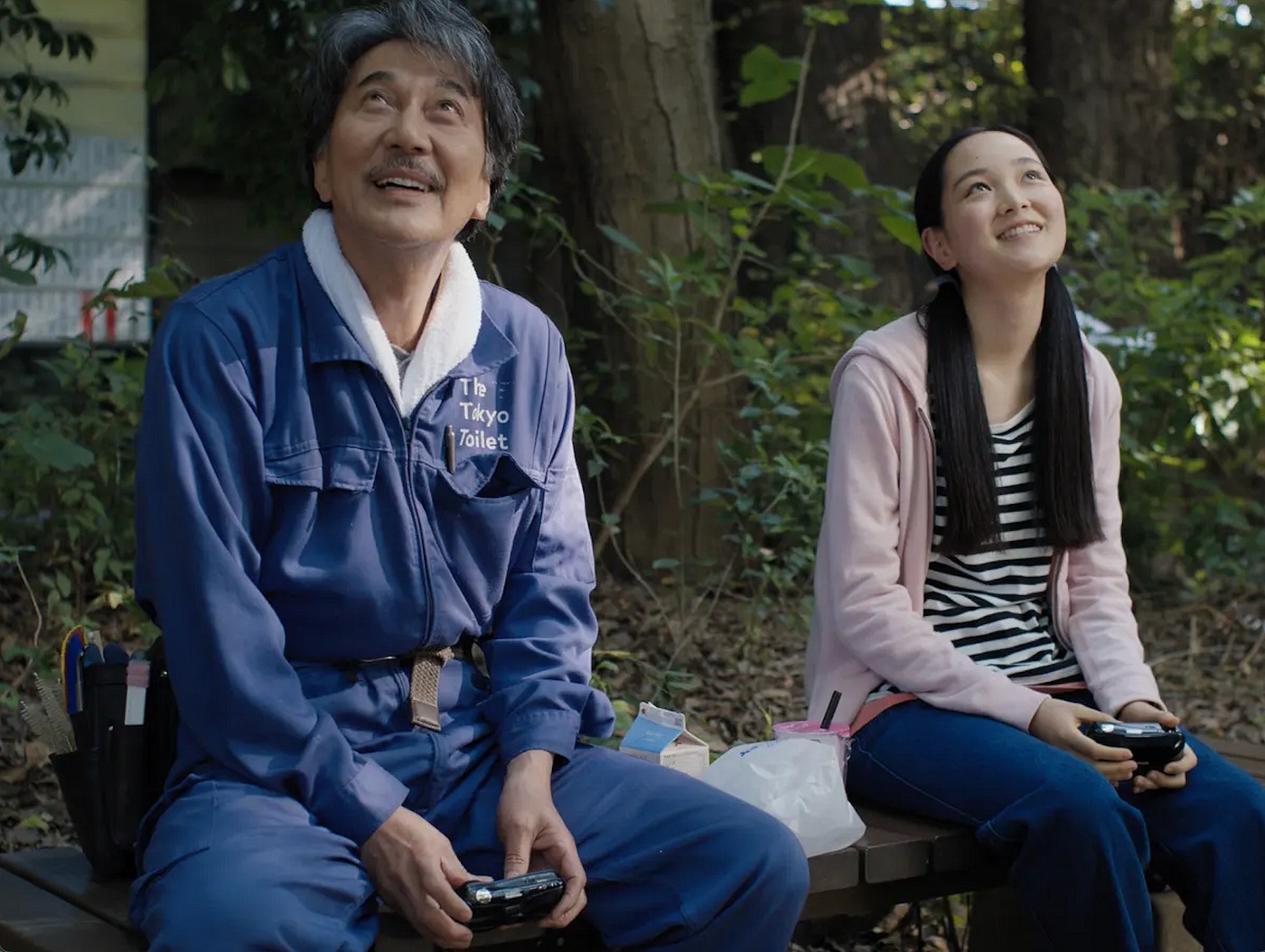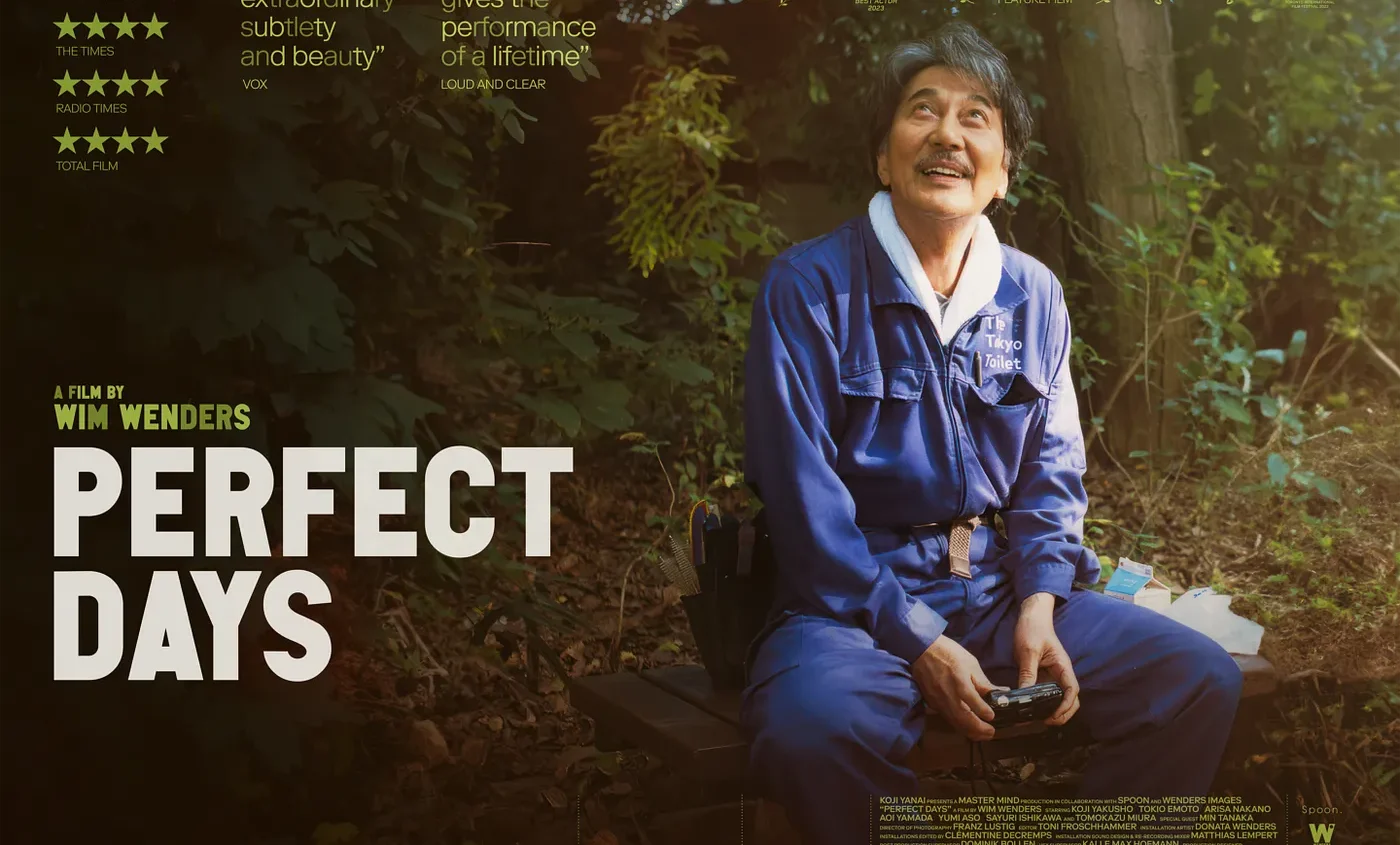The movie Perfect Days closes with a final scene that quietly reminds us how powerful simple human kindness and emotional connection can be. Directed in 2023 by Wim Wenders, Perfect Days shows once again how much depth Wenders brings to his stories.
Though he may not often be ranked among Europe’s top filmmakers, his ability to craft stories like this one shows his lasting value. The movie takes place in Tokyo, Japan, following Hirayama (played by Kōji Yakusho), who works as a toilet cleaner in Shibuya, one of the fancier parts of the city.

Even though his job may appear lowly, Hirayama doesn’t carry any signs of dissatisfaction. He approaches his work with seriousness, but he never lets it take over his peace. When not working, Hirayama finds happiness in listening to music, tending to plants, and reading books.
While the film may seem eventless on the surface, its emotionally rich ending reveals more about what it means to be human than many dramatic films with grander stakes.
Hirayama Spends Two Days With His Niece Niko
Niko’s Surprise Visit Changes Hirayama’s Routine
As the film nears its conclusion, Hirayama receives an unannounced visit from his niece Niko (Arisa Nakano). Although he had no idea she was coming, Hirayama gladly welcomed her. During their conversation, Niko discloses that she left her mother Keiko’s house, who happens to be Hirayama’s estranged sister.
The next two days are spent together, and they find joy in simple things like taking bicycle rides and taking pictures of trees in the park. Niko does not challenge Hirayama about his job or ask why he chooses to do work that pays so little while her mother earns much more. They simply savor the present.
There’s no moment where Niko urges herself to return home, nor does Hirayama attempt to lecture her about her mother. At no point does she raise questions about why he earns far less than his sister? Instead, both of them focus on calm and quiet joy.
Hirayama gives Niko a moment of peace without demanding anything in return. His calm presence and willingness to accept her as she is reflects a deep understanding that even someone from a more privileged background could still benefit from the stillness of a slower, peaceful life.
Keiko Comes For Niko And Reveals Their Father’s Condition
Hirayama Shares A Quiet But Powerful Hug With His Sister
Eventually, Niko has to return home, and Keiko arrives to pick her up. The meeting between the siblings is stiff, with Keiko’s tone hinting at disapproval. When she questions if cleaning public toilets is truly all her brother wants from life, it feels as though she’s belittling him.
But when she brings up their father’s failing health, it becomes harder to determine who holds the moral high ground. The movie received a nomination for Best International Feature Film at the 2024 Oscars. Keiko, it seems, has stayed involved in their father’s life and been present through his illness.
Although Hirayama may find joy and pride in his lifestyle, he still has his flaws, much like any good person in real life. When Keiko prepares to leave, Hirayama shows rare emotion—embracing her and crying quietly after her car disappears.
His bond with his family may be strained, but he shows a desire to repair at least one broken connection.
Hirayama Witnesses A Private Moment Between Mama And Another Man
Disappointment Hits Hirayama As He Sees Someone He Cares About With Someone Else
Among the few people Hirayama appears emotionally close to in the film is “Mama” (Sayuri Ishikawa), who runs a restaurant he visits often. Their chats each night carry a familiarity that hints at something deeper, even though their relationship never crosses into romance.
Later in the film, Hirayama walks into the restaurant and sees Mama hugging another man, which leaves him quietly heartbroken. Trying to ease his pain, Hirayama ends up by a riverbank, smoking and drinking quietly, when the same man from the restaurant approaches him asking for a cigarette.
The man explains that he is Mama’s ex-husband and came only to say goodbye after discovering he had cancer. He asks Hirayama to look after her when he’s gone, and Hirayama quietly agrees. These moments that combine sorrow with tenderness run through the heart of Perfect Days.
Kōji Yakusho Talks About Hirayama’s Connection With “Komorebi”
The Idea Of Komorebi Represents Being Peaceful With Life As It Is
In Japanese culture, there’s an idea called “komorebi,” meaning the way sunlight filters through the trees. It carries a gentle and nostalgic feeling — soft light slipping through branches, whether in a forest or from a tree someone may remember from childhood.
It might be the soft glow of morning light or the warm rays of sunset breaking through the leaves. Komorebi is tied to a calm acceptance of life and nature. In the film, Hirayama often lifts his head to admire the light through the trees, enjoying the life he’s created for himself under those rays.
This idea plays a central role, and actor Kōji Yakusho once told MovieWeb: “During the filming, Wim gave me a note that deepened my understanding of the link between komorebi and Hirayama. Those scenes where Hirayama looks up and smiles at the light became much clearer.
It wasn’t only the light—it was also about trees and the sunlight generally. The gratitude he felt for those things was key.” Throughout the movie, komorebi and Hirayama’s characters are tightly connected. In an interview with Deadline, Yakusho said:
“…the film’s working title was Komorebi or Perfect Days. So, it always carried strong meaning.” The film uses komorebi to reflect Hirayama’s attitude—being content with what life has offered.
Wenders’ direction and Yakusho’s quiet but powerful performance allow the movie to feel meaningful without turning sweet moments into something overly sentimental.
What The Ending Of Perfect Days Truly Says
All The Joy And Sadness Of Life Meet In Hirayama
Hirayama’s life isn’t flawless. He lives alone and does a job many people might look down on. Yet, Perfect Days uses the image of komorebi to show how valuable life still is, no matter how it appears to others. Still, the film never pretends that everything is always joyful.
Komorebi is not some feel-good motto that insists life must always be cheerful. Sadness, too, has its place. At the very end, Hirayama starts another workday in his usual way. He puts on his cassette player just like he’s done many times before.
As he drives, his face slowly reveals a storm of emotions—grief, joy, frustration, love, and peace—hinting at thoughts that can’t be fully named. He isn’t a man who only lives for pleasure, nor is he consumed by loneliness. He is simply someone who accepts life as it comes, and all the emotions that come with it.
What Makes The Ending Stand Out

The Movie’s Last Moments Wrap Everything Together Quietly
The final scene doesn’t aim to provide a neat conclusion or give every answer. Instead, it offers a gentle reminder that life continues, even after difficult truths are faced—like a dying parent or a promise to care for someone.
That last drive shows the presence of both light and darkness and how both are needed to give life its shape. As Hirayama drives, patterns of shadow and sunlight move across his face. His quiet crying and short smile mirror those patterns.
In that moment, he becomes a living image of komorebi, and knowing how much he values his quiet routine, it’s likely he would appreciate that. That’s part of why this ending stays with viewers. The scene may be simple, but it carries so much weight, giving Perfect Days a deep beauty.
How People Reacted To Perfect Days’ Ending
Critics And Viewers Gave The Film Strong Praise
The film received strong praise from both critics and audiences. It holds a Certified Fresh score of 96% and a 90% audience rating on Rotten Tomatoes. One viewer described it as “a kind and thoughtful film that reminds us to enjoy life’s small joys and feel thankful for being alive.”
On the critic’s side, David Rooney of The Hollywood Reporter wrote: “The strength of Perfect Days comes from the small moments—the tiny, quietly noticed details of a life. These bits, when put together, become a poetic and deeply touching story about one man who found peace and made difficult choices to get there.”
Still, some viewers see things differently. In a Reddit thread, user PinkMoonLanding shared their disagreement with critics who say the film is about “living in the moment.”
They argued, “Once he’s reminded that he has no children, that his sister disrespects him, that his father is dying, and that life is short—he breaks down. I saw a man who was barely holding on.” That point of view sparked deeper discussion.
Redditor briancly offered another thought, saying, “He stepped away from regular society, and that gave him peace. That doesn’t mean he doesn’t enjoy connecting with people—but only with those who share a similar spirit.” The discussion made it clear that Perfect Days is far more layered than it might first appear.



